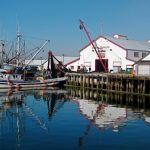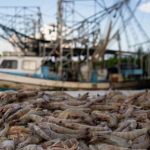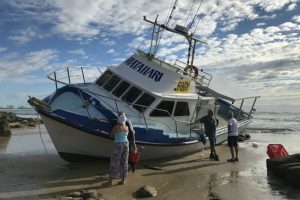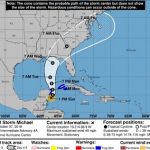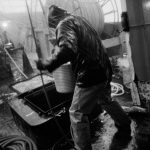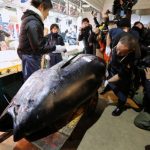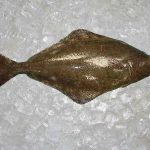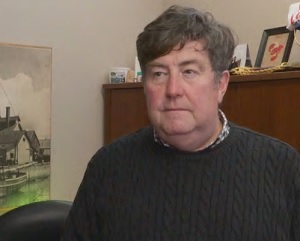Daily Archives: July 8, 2019
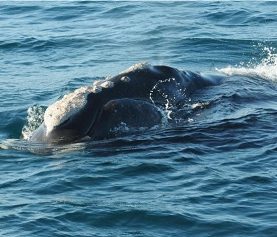
Transport Canada – New protective measures announced for North Atlantic right whales
Transport Canada has announced further protective measures in the Gulf of St. Lawrence for the North Atlantic right whale. The measures, announced Monday evening, include further reducing ship speeds in the area, increasing zones in which the speed restrictions will apply, increasing aerial surveillance and funding for initiatives to enhance marine mammal response. In 2019, there have been six whale deaths reported and on July 8, there were three North Atlantic right whales entangled in the southern waters of the Gulf of St. Lawrence,,, >click to read<21:03
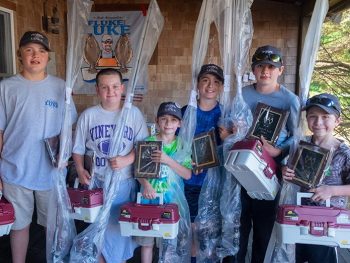
“Just put me down as Luke’s best friend,” – Honoring Everyone’s Best Friend at Fluke for Luke Tournament
More than 400 people registered to fish in the third annual Fluke for Luke tournament, the two-day fishing derby that commemorates the life of Luke Gurney, the beloved Island fisherman who died in a tragic fishing accident in June 2016. Many identified themselves as commercial fishermen hailing from the Island and along the Cape. All of them, however, defined themselves primarily as “a friend of Luke.” Each friend had a different story to share about Luke. Throughout those stories, two recurring themes emerged: his love for fishing and his love for helping others. Photo’s, >click to read<18:28
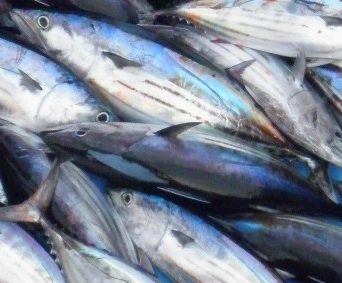
US tuna supplier Tri Marine sold to Bolton Group
Bolton Group, the Italy-based FMCG business, has reached an agreement with fellow tuna supplier Tri Marine of the US to acquire the remainder of the company. Milan-based Bolton has held a “significant” minority interest in the Tri Marine global business since 2013 and will now take 100% ownership, according to a statement, with both parties agreeing not to disclose the terms of a deal that was first mooted in April. Privately-held Tri Marine, which is engaged in the fishing, processing and distributing of tuna, will retain its name, while chief executive Renato Curto will continue to fulfil his role during a transition period. >click to read< 17:45
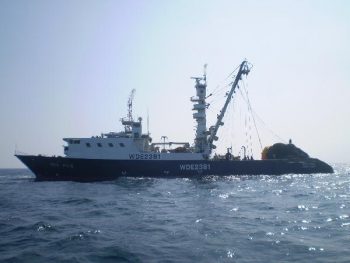
South Pacific Tuna Corporation cuts fleet by more than half
South Pacific Tuna Corporation announced yesterday that is selling more than half of its 14 U.S.-flagged purse seine fishing vessels to foreign operators, reducing its fleet to six by the end of the year. Approximately 12 U.S. captains and their crew will be relieved of duty. Additionally, the San Diego-based office and management team will be reduced to support the downsized fleet.,,, “Our fleet reduction is due in part to the U.S. government’s continued lack of support and the lack of interest in ratifying the 1988 South Pacific Tuna Treaty, renegotiated in 2016,” >click to read<
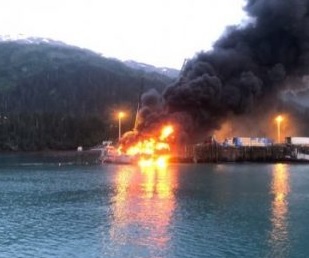
Coast Guard, locals and good Samaritans search for 1 person missing after explosion, fire in Whittier, Alaska
Coast Guard crews are searching for one person missing after an explosion and subsequent fire at Delong Dock in Whittier, Alaska, Monday. An MH-60 Jayhawk helicopter crew from Coast Guard Air Station Kodiak, forward deployed to Cordova, searched by air while crews aboard the Coast Guard Cutter Chandeleur and Coast Guard Auxiliary 336 continue to search for the missing person. Shortly after midnight, Coast Guard Sector Anchorage watchstanders heard the phrase “Whittier fire, Whittier fire” over VHF Channel 16 and contacted Whittier dispatchers, who confirmed there was a fire at Delong Dock. >click to read< 16:23
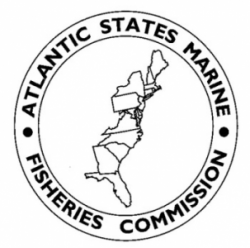
ASMFC Atlantic Herring Days Out Conference Call, Scheduled for July 10, 2019 at 1:00 PM
The Atlantic States Marine Fisheries Commission’s Atlantic Herring Management Board members from Maine, New Hampshire, and Massachusetts set effort control measures for the Area 1A (inshore Gulf of Maine) fishery via Days Out meetings/calls. Atlantic Herring Board members from Maine, New Hampshire, and Massachusetts are scheduled to convene via conference call to consider changing the start date of the Area 1A fishery on: Wednesday, July 10th at 1:00 PM >click here for more info, and links<13:42
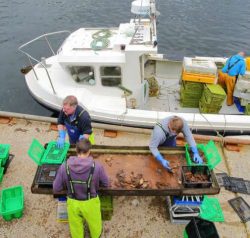
Lack of Trust muddies the water in UK fishing industry, (it muddies all waters, not just in the UK)
A survey of UK fishermen has revealed low levels of trust in key government organisations and scientists. The authors of the study say it is an area that urgently needs to be addressed for a successful fishing industry after Brexit. The study, (another hypothesis) by researchers (someone doing their Masters) at the University of York, involved a questionnaire designed to examine how well fishermen working in the UK fishing industry trusted key governing bodies, scientists and environmental groups. The researchers found low levels of trust in nearly all the institutions included in the survey. This is likely to be down to poor communication, political interference and discontent with the EU’s Common Fisheries Policy, the authors suggest. (The authors are biased towards management, actually, so unless you’re an EDF fisherman, none of this makes sense. >click to read< 13:05
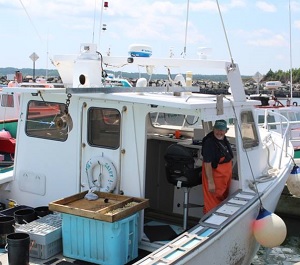
Lobster prices range from $7 to $8 per pound in Cape Breton
Lobster fishermen in Cape Breton are getting $7 or more a pound for the last two weeks of the season. Starting prices were $7 and they dropped to $6.50 for a couple of weeks before rising again to $7 for many Cape Breton lobster fishermen. However, some are getting $7.50 or $8 a pound based on who the buyer is. “I don’t understand why in parts of Nova Scotia (like the South Shore) they get fifty-cent more than we do when we’re supposed to have the best product here in Eastern Nova Scotia,” said Garren O’Neil who fishes out of Main-à-Dieu and gets $7 a pound. >click to read< 12:29
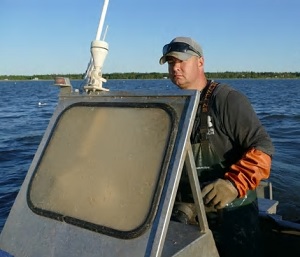
Fewer fish, or fishy science? Commercial fishers, biologists at odds over the state of Lake Winnipeg’s walleye
Minutes before dawn, five boats speed out of Hecla Village Harbour on Lake Winnipeg, home to the second-largest freshwater fishery in North America after the Great Lakes. The seven-metre skiffs are small enough to allow gill nets to be hauled up over their bows and pulled along their gunwales, revealing the catch ensnared below the surface of the shallow but enormous lake during the previous 24 hours.,, Walleye is the lifeblood of their business,,, Walleye deteriorating, province says,,, Few fish, or fishy data? >click to read< 09:14
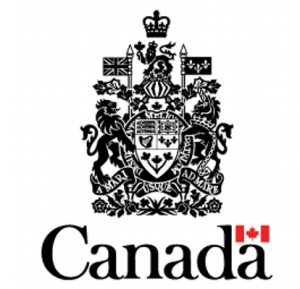
Fatal Port Hood fishing accident probe slowed due to backlog
The Transportation Safety Board says it’s dealing with a large number of marine incidents in Atlantic Canada and that’s slowing down the investigation process. For example, an investigation is still ongoing into a fishing accident that caused two deaths near Port Hood, N.S., more than a year ago. Hugh Watts and Glen MacDonald died after the Ocean Star II capsized about 100 metres offshore in May 2018. The TSB launched what’s known as a Class 4 investigation, which the agency said is a kind of probe that is limited in scope and usually completed within 200 days. It’s been more than 400 days since the investigation started. >click to read< 08:46
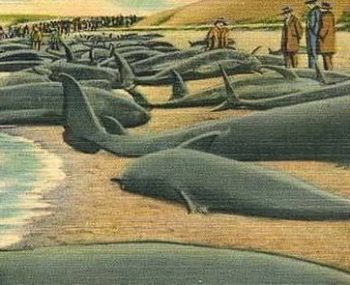
On This Day in 1958: Fifty whales stranded on Cape Cod
The United Press International wire story began; Tides Strand 50 Whales Off Cape Cod Island WELLFLEET, Mass., July 5 (UPI) — Tides of the Atlantic Ocean that refloated some 100 small whales brought more than half of them back again today… Townsfolk, aware of the problem of removing dead (and very smelly) whales from the sand bars, were joyful when an early morning tide washed most of the mammals free. But the joy was short-lived. The afternoon tide brought about sixty of the whales back onto the shore. >click to read< 08:06
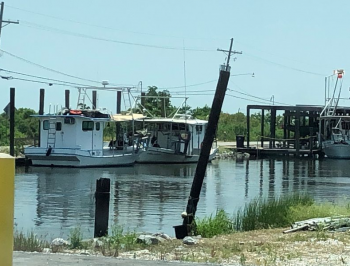
Oystermen say closures of prime harvest areas was inevitable
St. Bernard fishermen say the state health department made the right call this week with the closure of three main harvest areas. As they struggle to make ends meet they say it’s important to move quickly to save what’s left. Oyster boats that should have been out were instead tied to a Hopedale dock that would normally be bustling Friday (July 5). Two days earlier, the state announced a closure of three oyster zones, which longtime oyster fisherman Van Robin said shut down one of the most productive regions in the world. “The most highly productive areas, they’re closing it, because the oysters are dying in that area. >click to read< 00:02


































